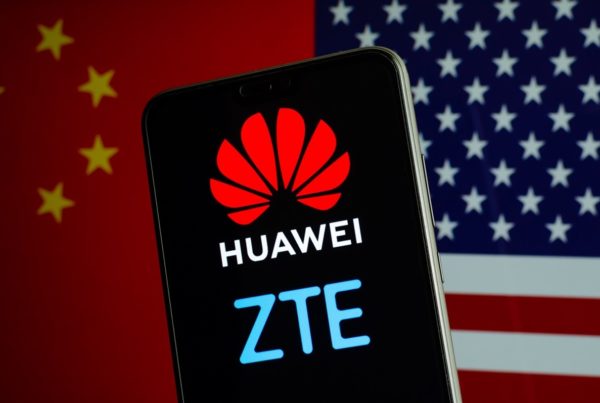Google as well as chipmakers based in the US are starting to break ties with Huawei, after the US security order that forbid American businesses from selling to the company. Huawei’s Android devices will lose access to Google’s latest software, Reuters reports, while chipmakers such as Qualcomm and Intel are halting supplies to Huawei, according to Bloomberg.
A Google spokesperson told Reuters the company was complying with the government order and “reviewing the implications”.
Current Huawei Android devices will maintain access to the Google Play store, the security functions of Google Play Protect and Google apps. However, future updates from Google are not guaranteed, and new devices will not be covered by the Google services.
Open source, alternative OS
A source familiar with the matter told Reuters that “Huawei will only be able to use the public version of Android and will not be able to get access to proprietary apps and services from Google”. This is the open source license, known as Android Open Source Project.
Details of the specific services affected by the suspension were still being discussed internally at Google, according to the source. Huawei attorneys are also studying the impact of the blacklist, a Huawei spokesman said.
A Commerce Department spokesperson told Reuters that the US government was considering allowing a temporary, general license for American companies to continue to service existing Huawei products. Huawei could purchase US goods so it can help existing customers maintain the reliability of networks and equipment, but the Chinese firm still would not be allowed to buy American parts and components to manufacture new products.
The impact is expected to be minimal on smartphones in Huawei’s home market China, where most Google apps are banned already. The impact on network equipment will be greater and could slow China’s launch of 5G networks. In other markets, Huawei may be forced to introduce an alternative to Android and other existing products. In March, the company said it was working on its own OS in the event a US ban was imposed.
Stockpiling chips
Meanwhile Bloomberg reports that chipmakers have already started informing employees they will halt sales to Huawei. This includes Intel, Qualcomm, Xilinx and Broadcom, according to people familiar with their actions.
Intel is the main supplier of server chips to the Chinese company, Qualcomm provides it with processors and modems for many of its smartphones, Xilinx sells programmable chips used in networking and Broadcom is a supplier of switching chips, another key component in some types of networking machinery. Representatives for the chipmakers declined to comment.
Huawei is said to have stockpiled enough chips and other vital components to keep its business running for at least three months. It’s been preparing for such an eventuality since at least the middle of 2018, hoarding components while designing its own chips, people familiar with the matter said. Its executives believe their company has become a bargaining chip in ongoing US-Chinese trade negotiations, and that they will be able to resume buying from American suppliers if a trade deal is reached, the report said.
More suppliers
The Nikkei’s sources said Huawei may have enough components for up to a year of operations. Multiple sources told the paper that Huawei’s preparations for the US ban on business with key suppliers started more than six months ago and were not limited to chips but spanned a wide range of electronics, including passive components and optical parts. For some components that are subject to higher risks of export controls, Huawei has stockpiled six months’ to more than a year’s worth of supply, while holding at least three months’ worth of less crucial ones, the sources said.
The world’s second-largest smartphone vendor also started at the beginning of this year to certify more suppliers, people familiar with the matter said. Previously it relied on the top one or two suppliers of a component, whereas now it has three or four for each product, often in different countries.
The Chinese company also set a goal of developing its own versions of semiconductor devices, including high-end radio frequency and optical chips, for which it still relies heavily on US vendors, within two and a half years.
Other Huawei suppliers based in the US include Micron Technology, Skyworks, Analog Devices, Qorvo and Finisar. The ban on doing business with the company and 68 of its affiliates without a special license will take effect once the Commerce Department’s order has been published in the Federal Register; this is expected on 21 May.
LUBEA News on-line
Date: 2019-05-20
Source: Telecompaper





